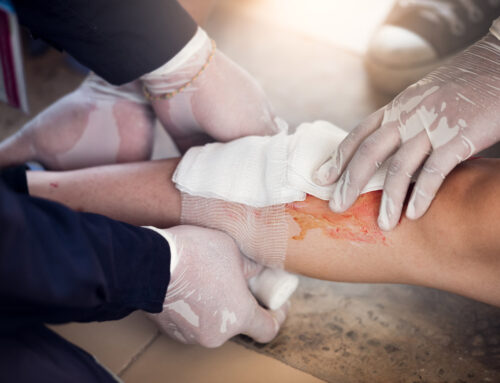A personal injury in the legal field is defined as any harm caused to the body, mind, or emotions. In a personal injury case, the plaintiff or injured party asks for compensation from the negligent party or defendant who caused the injury. There are too many types of personal injuries to even hope to be able to list them all, so let’s discuss ten of the most common injuries.
Car Accidents
One of the most common types of personal injuries is caused by car crashes, sometimes with multiple liable parties involved. Some of these injuries include:
- Double Crush Syndrome.
- Broken bones and lacerations.
- Internal bleeding.
- Paralysis.
- Traumatic head injuries.
- Complex Regional Pain Syndrome.
Workplace Injuries
According to the National Safety Council, an employee is hurt on the job every seven seconds. There are a plethora of ways a person can get injured in the workplace such as being hit by falling objects, defective machinery or lack of provided safety equipment, occupational illnesses due to exposure to toxins, and more. It’s important to contact an attorney to represent you in these cases to help you gather the necessary evidence, and to protect you from stingy employers and insurance companies.
Slip and fall accidents are the most common type of workers’ compensation injuries. It may sound like a simple accident, but falling at work can cause a variety of painful injuries including, but not limited to:
- Sprains, strains, and fractures.
- Concussions.
- Contusions.
- Dislocations.
- Lacerations.
- Traumatic brain injuries.
- Soft tissue damage.
- Back and spinal cord injuries.
- Shoulder and neck injuries.
Product Liability
When you buy a product, you should be able to trust that it won’t cause you any harm when used as intended. Sometimes, these products are simply unfit for use, or the manufacturing company fails to include necessary warnings and or clear instructions. Some examples of cases that can result in product liability include:
- Defective design means that the product itself is dangerous even when it is being used exactly as intended. For example, if you rub hand lotion on your hands and it causes chemical burns, it would be considered defective by design.
- A manufacturing defect occurs when the product doesn’t come out the way it was supposed to. For example, if the lotion produced by the company works normally except for one bottle, it would be a case of manufacturing defect.
- As mentioned previously, sometimes companies do not properly warn consumers about side effects, safeguards, or other important product information. When this happens, it is called Inadequate Warning or Inadequate Instructions, depending on which information is missing or unclear. Using the lotion example once more, if the warning label does not tell the consumer that the lotion is intended for hands only and the consumer uses the lotion on his or her face resulting in injury, the company is liable.
Medical Malpractice
When you seek medical attention, it should not do you more harm than good. Medical malpractice happens when a medical professional causes harm to a patient through negligence or failing to competently do his or her job. There are a few key factors needed for a medical malpractice case that your lawyer can help you with.
- There must be evidence that a doctor-patient relationship existed with the doctor you intend to sue. In plain terms, this means proof that you hired the doctor, and he or she agreed to work for you.
- The doctor has to have done something wrong. Being unhappy with treatment results is not enough for a successful case. For example, if a doctor prescribes you two medications that when taken together are dangerous, it is considered medical malpractice.
- The doctor’s negligence has to have caused injury.
Premises Liability
When the owner of a property fails to properly maintain it or warn visitors of hazards, he or she is liable for any injury caused to a person, as long as it was not an intruder. Premises liability injuries can be caused by things such as:
- Slip and fall accidents due to the lack of a wet floor sign.
- Electrocution from exposed or faulty wiring.
- Animal bites that occurred because the animal was not properly contained.
- Respiratory diseases from mold or harsh chemicals.
Personal injury cases don’t have to be physical. Discrimination, trauma, and pain and suffering are compensable as well. The right lawyer will help you gather all of the proof you need for your case. Whether your personal injury is physical or not, having a personal injury attorney on your side makes all the difference.
If you or a loved one have been harmed due to the actions or inactions of another party, contact our firm for a free consultation with one of our experienced personal injury attorneys to get the compensation you deserve.







